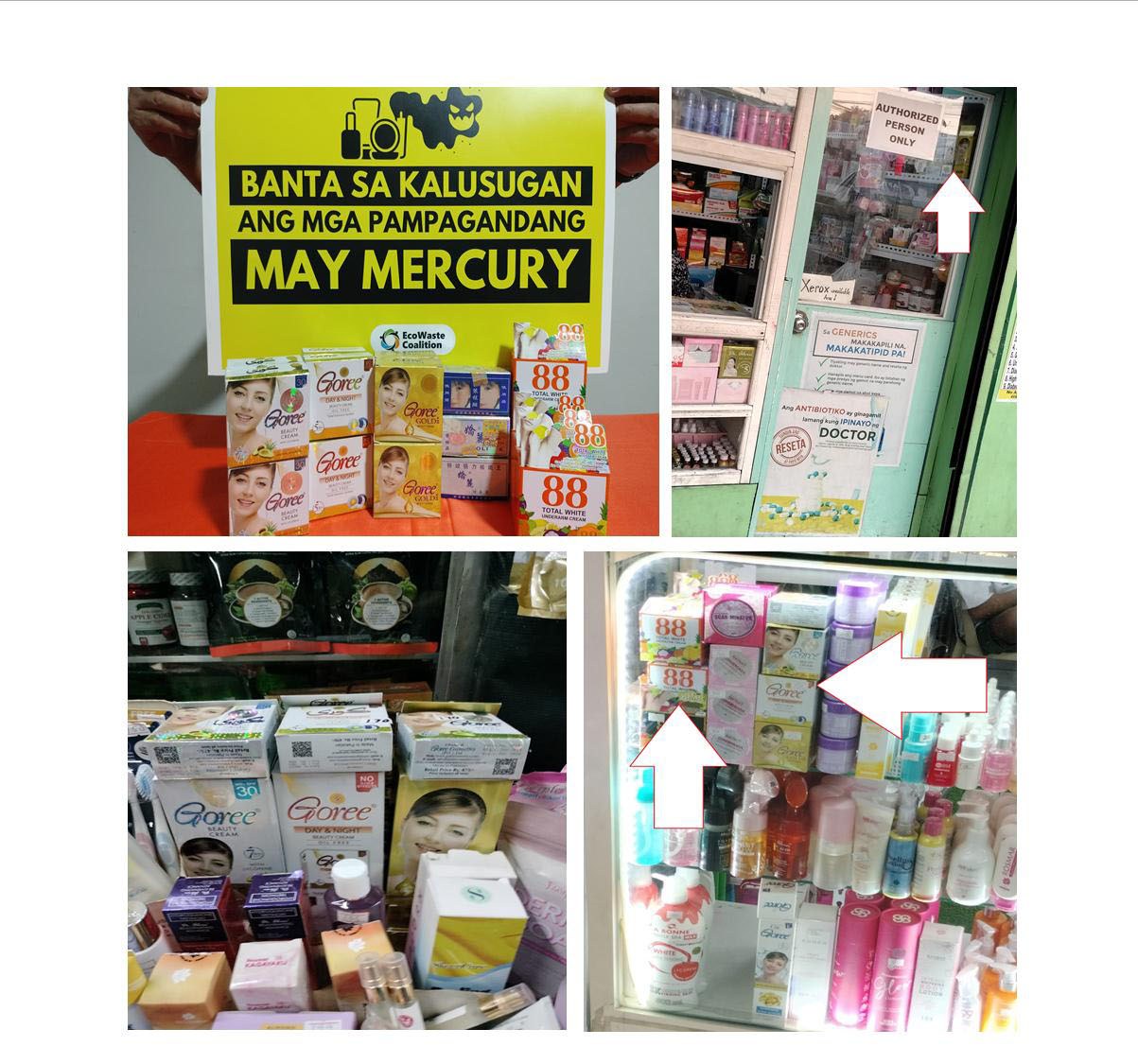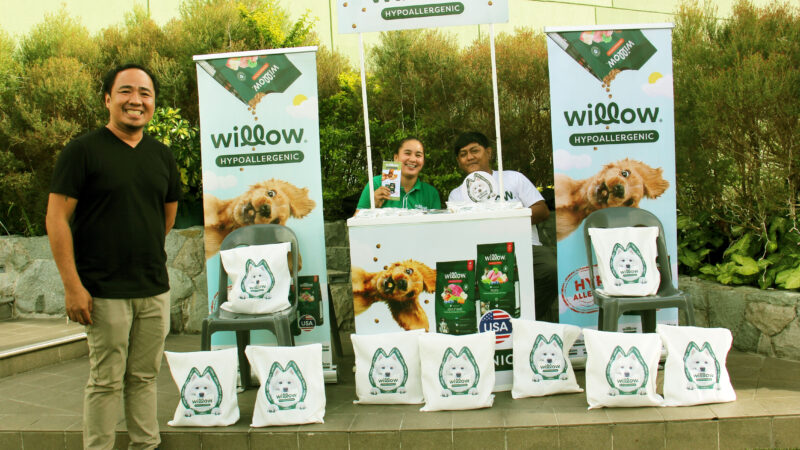Cosmetics Contaminated with Mercury Brazenly Sold in Mandaluyong City

(Watchdog group finds 12 stores, including a pharmacy, selling banned mercury cosmetics)
14 June 2024, Quezon City. The toxics watchdog group EcoWaste Coalition has again put government regulators, law enforcers, and consumers on the alert regarding the blatant sale, this time in Mandaluyong City, of forbidden skin lightening products laden with mercury.
Recent market surveillance conducted by the group from June 9 to 13 found at least 12 beauty products, food supplements, and drug stores selling cosmetics that have been banned by the Food and Drug Administration (FDA) for containing mercury (a prohibited ingredient in cosmetics) and/or for being offered for sale sans FDA-issued certificates of product notification.
“We appeal to the Mandaluyong City Government, the FDA Regulatory Enforcement Unit and other duty-bearers to implement effective measures that will put an end to the unrestrained sale of mercury cosmetics, which can contaminate and harm the human body and the ecosystems, too,” said Aileen Lucero, National Coordinator, EcoWaste Coalition. “Let us embrace our natural skin tone and avoid exposing ourselves and others to mercury and other hazardous substances in skin lightening products.”
Twelve stores selling dangerous cosmetics with mercury in a small but progressive city is very alarming, the EcoWaste Coalition observed, noting that Mandaluyong City has a total land area of only 11.26 square kilometers.
Three of these stores are doing business inside the Marketplace Shopping Mall, Starmall EDSA-Shaw, and the Shaw Center Mall; four are situated at the Shaw Boulevard MRT Station (Greenfield District exit; “P” and third floors); and five are located along F. Martinez and Nueve de Febrero Streets.
“One of the stores selling banned mercury cosmetics is a ‘pharmacy’ as prominently written on its signage. We find this very disturbing as adulterated, banned, and unauthorized health products have no place in a legitimate pharmacy, which has an important role in healthcare,” said Lucero. It is not known if this pharmacy has a license to operate.
The errant stores sell one or more of the following FDA-banned cosmetics: Goree Beauty Cream with Lycopene, Goree Day & Night Beauty Cream, Goree Gold 24K Beauty Cream, 88 Total White Underarm Cream, and Jiaoli Miraculous Cream.
Between 2017 up to 2023, the FDA issued multiple advisories warning consumers against the purchase and use of the said Goree products from Pakistan. The advisories against 88 Total White Underarm Cream from Thailand and Jiaoli Miraculous Cream from China were issued in 2021 and 2010, respectively.
According to the Secretariat of the Minamata Convention on Mercury and the United Nations Environment Programme, “people of all genders use skin-lightening products formulated to fade freckles, blemishes, age spots and treat acne; however, many use these products to intentionally lighten their skin color.”
“Consumers are often unaware that these products contain a host of harmful chemicals including mercury, causing skin rashes and discoloration; scarring; nervous, digestive and immune system damage, as well as anxiety and depression. Pregnant women, babies, and young children are particularly at risk,” the two UN bodies said.
As explained by the World Health Organization (WHO), “some people use creams and soaps to lighten their skin color, but many skin-lightening products contain mercury and other chemicals dangerous to health. These products are toxic,” adding “mercury can cause kidney damage, neurological disorders, and other health effects.”
The manufacture, import, export, and/or sale of cosmetics such as skin lighteners with mercury is banned under international and national laws and regulations, including the Minamata Convention on Mercury, ASEAN Cosmetic Directive, Republic Act No. 9711 (Food and Drug Administration Act), Republic Act No. 7394 (Consumer Act of the Philippines), DENR Administrative Order No. 2019-20, and various FDA advisories, the EcoWaste Coalition pointed out. (PR)
Reference:
https://www.fda.gov.ph/wp-content/uploads/2022/06/FDA-Advisory-No.-2011-012.pdf
(product #1, page 1)
https://www.fda.gov.ph/wp-content/uploads/2022/05/FDA-Advisory-No.-2017-289.pdf
https://www.fda.gov.ph/wp-content/uploads/2023/11/FDA-Advisory-No.2023-2344.pdf
https://www.fda.gov.ph/wp-content/uploads/2023/12/FDA-Advisory-No.2023-2391.pdf
https://www.fda.gov.ph/wp-content/uploads/2023/12/FDA-Advisory-No.2023-2392.pdf







